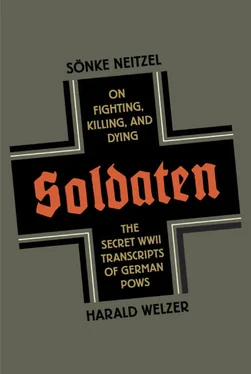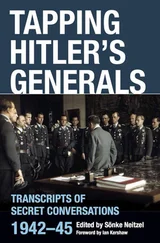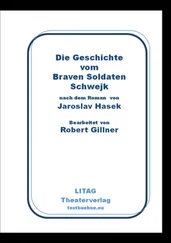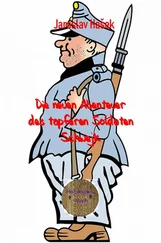Changes in social practice were a major driving force. There were no public protests against the Nazis’ anti-Jewish policies, nor was there significant popular complaint at the concrete discrimination suffered by German Jews. This does not mean that most Germans approved of anti-Semitic repression, but Germans’ passivity, their toleration of repression, and their restriction of criticism to the private realm of their peers translated politically initiated discrimination into everyday social practice. It would overestimate ideology and play down the practical participation of ordinary community members if we were to reduce the changes in the mentality structure within Nazi society to the propagandistic, legislative, and executive acts of the regime. The active interworking of political initiative, private adaptation, and practical realization was what allowed the National Socialist project to engender such surprisingly rapid consensus. The Third Reich could be called a participatory dictatorship, in which members of the Volk community cheerfully did their bit, even if they weren’t committed Nazis.
This sketch of the Nazification of German society may suffice to explain Germans’ growing sense of satisfaction with the system in the years before 1941. Other sources of popular approval were the Nazis’ foreign policy “triumphs” and the “miracle economic recovery,” which, though built on sand, made members of the Volk feel as though they were living in a society that had a lot to offer. It was within this frame of reference, the Third Reich, that German soldiers heading to war ordered their perceptions, interpretations, and conclusions. This was the backdrop against which they understood the purpose of World War II, categorized their enemies, and evaluated victories and defeats. Those soldiers’ experiences of war would go on to modify this frame of reference. As the conflict dragged on, and the prospects of ultimate victory receded, soldiers’ faith in what Hans Mommsen called “the realization of the utopian” diminished. But it did not automatically invalidate fundamental ideas about human inequality, the demands of blood, and the superiority of the Aryan race. Even less so did it call into question the third-order military frame of reference. And that will be the topic of the following section.
The transformation of the 100,000-man German army of 1933 into the 2.6-million-strong Wehrmacht force that attacked Poland in 1939 was not just an act of material armament. It was accompanied by the consolidation of a frame of reference in which the military acquired positive connotations typical of Germany and the time. The political and military leadership placed great emphasis on anchoring military values within the general populace, making the Volk fit for battle, and forming a unified and willing “community of destiny.” Working together, these leaders succeeded in militarizing German society to a high degree. {48} 48 Wolfram Wette et al., eds., Das Deutsche Reich und der Zweite Weltkrieg, Vol. 1 (Stuttgart: Metzler Verlag, 1991), p. 123ff.
Nazi party organizations like the Hitler Youth, the SA, and the SS, along with initiatives like the Imperial Labor Service ( Reichsarbeitsdienst ) and the reintroduction of universal conscription in 1935 increased the fighting capacity of the German people to unprecedented levels. The German populace may not have celebrated the start of World War II in September 1939 with the same euphoria that they had World War I in 1914. In fact, the mood was largely somber. But 17 million German men let themselves be drafted without protest into the Wehrmacht during the course of World War II. Without them Germany would not have been able to fight on until 1945. The success with which German society was militarized was less about getting all German men to support the war than about producing a framework within which they shared or at least did not question military value systems. This cannot be explained only with reference to the massive propaganda efforts of the Nazi and Wehrmacht leadership. On the contrary, the Nazis were able to build upon a radicalization of the military sphere that had taken place in decades before the Third Reich.
The Prussian-led wars from 1864 to 1871 that created the unified German nation had rooted military values deep within German society, and even many of those critical of the state shared them. {49} 49 For an international comparison of militaristic discourse from the mid-eighteenth century to the outbreak of World War II, see Jörn Leonhard, Bellizismus und Nation: Kriegsdeutung und Nationsbestimmung in Europa und den Vereinigten Staaten, 1750–1914 (Munich: Oldenbourg Verlag, 2008).
In World War I, social models of violence and inequality spread, and the value attributed to qualities like bravery, daring, obedience, and sense of duty increased. Among German military officers, the ideal of the heroic death, epitomized by the soldier willing to defend his position to the last bullet, experienced a new renaissance. {50} 50 For a concise account, see Brian K. Feltman, “Death Before Dishonor: The Heldentod Ideal and the Dishonor of Surrender on the Western Front, 1914–1918 , ” lecture manuscript (University of Bern, 10 September 2010). See Isabel V. Hull, Absolute Destruction: Military Culture and the Practices of War in Imperial Germany (Ithaca: Cornell University Press, 2005); Alan Kramer, Dynamic of Destruction: Culture and Mass Killing in the First World War (Oxford: Oxford University Press, 2007); Alexander Watson, Enduring the Great War: Combat, Morale and Collapse in the German and the British Armies, 1914–1918 (New York: Cambridge University Press, 2008).
This was a general European development, not a particular German phenomenon. The myth of Leonidas at the Battle of Thermopylae and the trope of fighting to the last bullet were also very influential in Britain and France. {51} 51 Watson, Enduring , p. 3. The trope of fighting to the last bullet was very powerful throughout the nineteenth century. It is reflected in the 1873 painting Les Dernières Cartouches by Alphonse de Neuville, which heroically stylized the defense of the Bourgerie in Bazeilles near Sedan and was enthusiastically received all over France.
During the Weimar Republic, significant parts of German society propagated the idea of national defense and a state willing to take to battle as an alternative to the Treaty of Versailles and the perceived impotence of German democracy. {52} 52 Rüdiger Bergien, Die bellizistische Republik: Wehrkonsens und “Wehrhaftmachung” in Deutschland, 1918–1933 (Munich: Oldenbourg Wissenschaftsverlag, 2010). For the international context, see Stig Förster, ed., An der Schwelle zum Totalen Krieg: Die militärische Debatte um den Krieg der Zukunft, 1919–1939 (Paderborn: Schoeningh, 2002).
Germany was to mentally prepare for wars to come by encouraging courage, enthusiasm, and willingness for sacrifice. {53} 53 Jürgen Förster, “Geistige Kriegführung in Deutschland 1919 bis 1945,” in Das Deutsche Reich und der Zweite Weltkrieg, Vol. 9/1, Militärgeschichtliches Forschungsamt, ed. (Munich: Deutsche Verlags-Anstalt, 2004), p. 472.
The literary apostles of “soldierly nationalism,” men like Ernst Jünger, Edwin Dwinger, or Ernst von Salomon, spread a metaphysical, abstract cult of war among hundreds of thousands of readers, and they were supported in their efforts by a host of right-wing, nationalistic organizations, including the Stahlhelm (Steel Helmet) association. By the end of the 1920s, war memorials that concentrated on representing grief for soldiers killed in battle had given way to monuments creating a mystique of brave fighters on the front lines. {54} 54 Sabine Behrenbeck, “Zwischen Trauer und Heroisierung: Vom Umgang mit Kriegstod und Niederlage nach 1918,” in Kriegsende 1918: Ereignis, Wirkung, Nachwirkung, Jörg Duppler and Gerhard P. Groß, eds. (Munich: Oldenbourg, 1999), p. 336ff.
Tributes to battles Germany had won during World War I and the wars of German unification became omnipresent. Voices of protest against this romanticizing of the military past and pacifist objectors to the army had increasing difficulty making themselves heard.
Читать дальше












